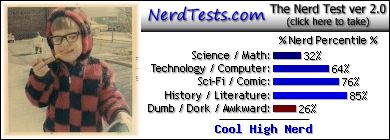They laughed when she described a guy who was trying to act superior (and she didn't say he was acting that way because he was white, just that he was acting that way) needing help from her, and her deciding how much help this rude guy in front of her deserves. Anyone who's ever served the public (in retail, hotels, government work, etc.) knows the story, and likely had the same thoughts themselves, at one time or another. Most just swallow it and do their jobs, but some--like this woman, at that time, anyway--didn't/don't. But regardless of how we reacted to our own brush with rudeness, we all know the impulse, and that's why the laugh. (The bigotry came later, and I didn't hear anyone laughing, then.)
If a video came out of a white person saying s/he had bigoted attitudes 20 years earlier and had at least once acted on them, and it ended with "It's not about black and white... Well, it is, a little but it opened my eyes...
Perhaps the MSM is trying to get the whole story, first. (and if so, I applaud them, because they so seldom do.)
---
Read my comment again, because there is nothing in it about condoning racism.
My point was, no one should be judged by a single act, and many people who do bad things grow and change and use examples from their lives--even the bad ones--to teach others to be better than they were, and if that is the case here--if the point of her telling that tale at an NAACP meeting was to say "Don't think and act as I once did. Black or white, there are people who need our help."--that ought to be a part of the story, too.
Even if you don't agree that anyone needs or deserves help from an outfit like the NAACP, it's a very different message than billing this as an example of NAACP racism. If that's what she's saying, it's an example of a person delivering the exact opposite message to the NAACP.
And whether I'm right or wrong, I'd sure like to see the whole tape, so there's no doubt as to what she was saying, or why.
Strom Thurmond became a better man. (And yeah, I think that Lott got screwed out of his position over trying to say a nice thing about an old guy on his birthday.)
Robert Byrd became a better man.
This woman may've become a better woman as well, and right or wrong, I'd like to know the whole story before passing judgement.
---
In context or out, she was a bigot in 1986...
I was a stoner washing dishes in a restaurant and dating a gal who turned out to be a cheating slut.
Times change, people change, attitudes change.
The context is whether and how she changed... and like I said, I'm relatively sure that that was the point of telling the story, and the moral--what she'd learned and how she'd changed--was the part that got cut off the end.





















.gif)






No comments:
Post a Comment